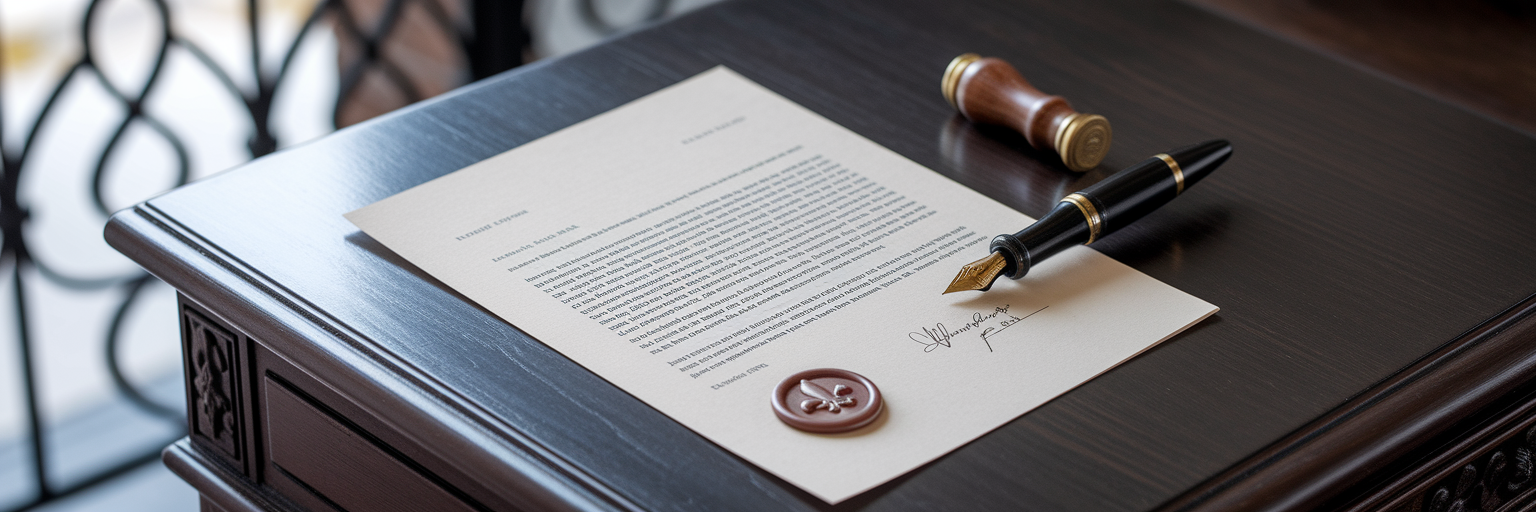A Guide to Notarizing Power of Attorney Documents in Louisiana

The Role of a Power of Attorney in Louisiana
Louisiana's legal system, rooted in civil law, stands apart from the common law traditions found in most other states. This distinction has a direct impact on how legal documents are prepared and executed. A Power of Attorney (POA) is a legal instrument that grants a trusted person, known as an agent or mandatary, the authority to manage financial, medical, or legal affairs for someone else, the principal. This document becomes particularly important when a principal cannot act for themselves due to illness or absence.
While the purpose of a POA is straightforward, the state has specific Louisiana power of attorney requirements that must be met for the document to be legally valid. Understanding these formalities is the first step in ensuring your wishes are protected and your designated agent can act on your behalf without complication.
Louisiana's Unique Notary Requirement: The Authentic Act
In Louisiana, creating a durable Power of Attorney involves more than a simple signature. The law requires the document to be executed as an "authentic act." This is not just a standard notarization; it is a formal ceremony with strict legal requirements. As outlined in the Louisiana Civil Code, an authentic act is a document signed by the principal, two competent witnesses, and a notary public, with all parties physically present for the entire process.
The primary benefit of this formality is that an authentic act is considered self-proving in court. Its validity is presumed without needing additional testimony from the witnesses who were present at the signing. This legal strength is especially critical for POAs used in real estate transactions or other significant financial matters. This rigorous standard contrasts sharply with the more relaxed requirements in other states, highlighting the importance of working with a qualified Louisiana authentic act notary who understands these specific protocols. This process ensures the document is legally sound and can withstand potential challenges.
The Step-by-Step Notarization Process for a POA
When you need to know how to get a POA notarized in Louisiana, following a clear procedure is essential to create a valid authentic act. The process is methodical and designed to confirm the identity and intent of everyone involved. It begins with assembling all necessary parties. The principal, the agent (if their signature is required to accept the role), and two qualified witnesses must all be physically present with the notary. Witnesses must be of age, competent, and cannot be the person named as the agent.
Next, the notary will perform identity verification. Every person signing the document must present a valid, government-issued photo ID, such as a driver's license or passport. This is a non-negotiable step to prevent fraud. The notary then has a duty to confirm the principal's intent, ensuring they are signing willingly, understand the authority they are granting, and are not under any form of duress or coercion. This verbal confirmation is a key part of the notary's role.
Finally, the signing ceremony takes place in a specific order. The principal signs the document first, followed by the two witnesses. The notary is the last to sign, affixing their official seal and signature to complete the authentic act. This formal process transforms a simple document into a legally powerful instrument.
| Participant | Primary Role | Key Responsibility |
|---|---|---|
| Principal | The person granting authority | Must understand the document and sign willingly in front of the notary and witnesses. |
| Agent (Mandatary) | The person receiving authority | Acts on the principal's behalf; may need to be present to accept the appointment by signing. |
| Witnesses (2) | Observe the signing | Must be competent, of age, and attest to witnessing the principal sign the document. Cannot be named as the agent. |
| Notary Public | Authenticates the act | Verifies identities, confirms willingness, and ensures the document complies with Louisiana law before signing and sealing. |
Convenience and Accessibility with Mobile Notary Services
Coordinating the schedules of a principal, an agent, and two witnesses can be a significant logistical challenge. This difficulty is compounded when the principal has mobility issues or is in a hospital or care facility. We have all felt the pressure of trying to align schedules for an important meeting, and this situation adds legal and emotional weight. This is where mobile notary services provide a direct and compassionate solution.
A mobile notary travels to a location that is convenient for the client, whether it is a home, office, or hospital room. This service removes the burden of travel and ensures the notarization can proceed without adding stress to an already difficult time. For those needing to notarize a power of attorney in New Orleans or seeking a mobile notary in Jefferson Parish, this accessibility is invaluable. Services like JP Notary bring this essential function directly to you, ensuring full compliance with Louisiana law without the logistical hurdles. For assistance, you can visit jpnotary.com or call their office at 504-513-7333 to schedule an appointment.
Ensuring Your Power of Attorney is Legally Sound
A Power of Attorney is only useful if it is legally enforceable when you need it most. Minor errors or procedural missteps can render the document invalid, leaving your family in a difficult position. The best defense against such problems is to ensure every legal requirement is met from the start. The peace of mind that comes from knowing your affairs are in order is immeasurable.
To confirm your Louisiana Power of Attorney is valid, make sure it meets these core requirements:
- It must be a written document.
- It must be executed as an authentic act.
- It requires a notary and two competent witnesses to be present at the signing.
Working with a knowledgeable and experienced notary public is the most reliable way to protect the principal's wishes. A professional ensures every detail is handled correctly, giving you confidence that the document will function as intended.
Need Professional Notary Services?
Contact JP Notary for reliable, professional notary services in New Orleans.


